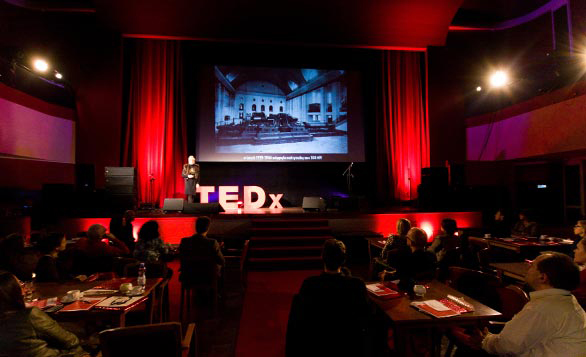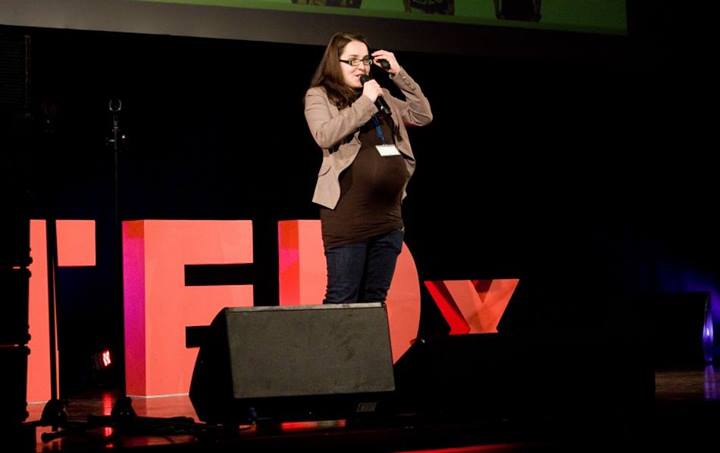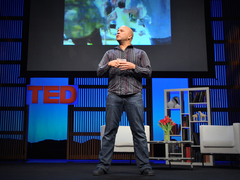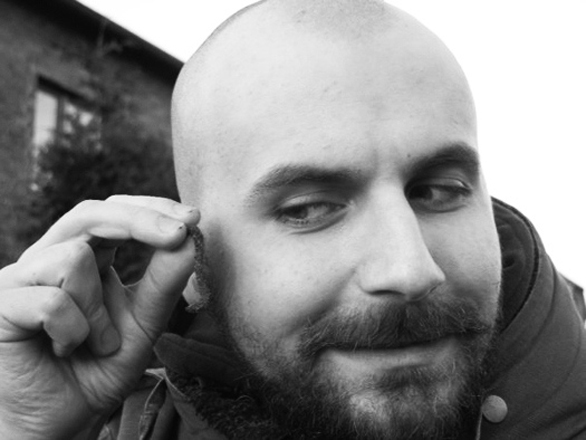
A look at TEDxRawaRiver, an event in Poland where the first TEDx Talk in Silesian was given.
By Krystian Aparta, as told to Kate Torgovnick
Silesian is a Slavic language spoken by about 500,000 people in a region of Poland known as Silesia. Because the region had been home to a large German population until World War II, and because it neighbors the Czech Republic, it consists largely of German and Czech vocabulary. But while it’s often considered a dialect of Czech or Polish, it isn’t so easy for Czech- or Polish- speaking people to follow it. Silesian is its own language — and one in danger of dying out. And yet this month, Silesian became the 103rd language available on TED.com. This may very well help Silesian survive.
I grew up in a Silesian family. Until I was three, I lived in a different part of Poland — so my first memories of the language are of trying to pick it up. It wasn’t always easy, as there was often an overlap between what a word meant in Polish and what a word meant in Silesian. I remember my grandmother saying “latoś,” which sounded to me like the Polish word for summer, “lato.” It took a while for me to realize that it actually meant “this year.” It took time to negotiate the difference between what I knew and this new language. This is typical for many children: their experience of being bilingual is feeling unaware that they are learning two different languages at the same time.
The more I lived in Silesia, the more the language would turn on like a trigger for me. What happens is interesting — when you meet somebody you don’t know, who’s possibly an outsider, you drop some Silesian words into what you are saying. If they respond, then you switch to Silesian. Silesian was once considered a “hick language.”
When Poland was still a Communist country — before we got democracy — Silesian was ridiculed as the language of the lower-class, uneducated farmer. If it was on TV or in the movies, it was just pretend — an actor would speak with a bit of an accent, and use like three Silesian words. But this is what people thought Silesian was. It’s why a lot of people, especially younger people, don’t want to be associated with the language even though Silesia now has its own TV and radio stations, and its own alphabet. That is yet another stumbling block for Silesian — not everyone knows how to use the script. People have been pushing for allowing Silesian as a supplementary language in school — but it hasn’t happened yet.
I started working for TED in March, after a long time of being a volunteer translator. A week later, a new language was added to the site. I quickly thought about Silesian. I was aware of efforts to make Silesian stronger, so I thought, “Why not help with TED?” TED doesn’t only spread ideas in widely-spoken languages, but it has also helped minority languages. I thought this could help the language survive. I thought, “If we get a Silesian translation effort going, we might encourage more people to learn the script.” That would be awesome.
Several people in my family, especially my aunt, Urszula Cieślik, are activists for Silesian. I reached out to some Silesian language researchers that she put me in touch with and found some preliminary volunteers to help with translation. It turned out I wasn’t the only one with the idea to bring Silesian to TED. I started collaborating with Paweł Wyszomirski, the organizer of TEDxRawaRiver, held in Katowice, the capital of Silesia. For his second-ever event, he wanted to have two talks in Silesian. I told him about the idea to add Silesian to TED.com and he was really excited. He offered to help us find volunteers … and invited me to give a talk.

Klaudia Roksela gives the first TEDx Talk in the language Silesian.
Last month, I spoke about TED’s Open Translation Project and Silesian at TEDxRawaRiver. It was held in a renovated movie theater, with attendees sitting around tables. The event was very much about the region, even if it wasn’t about Silesian per se. It was interesting to hear the very first TED Talk in Silesian — it was from Klaudia Roksela, a woman who started a company, which began as a blog, surfacing Silesian words. They started creating t-shirts with local designers with these words on them. They were doing good work — reframing Silesian for the younger generation who don’t think it’s cool. I found the second talk by Dariusz Dyrda a little confusing, but he had a good point — that there needs to be a distinction between quote-unquote “true” Silesian and Polish with some Silesian in it.
Klaudia, who gave that first talk, wanted to collaborate and become a translation volunteer. But she was very pregnant when she gave her talk and she had her baby before we got the chance to start.
 Derek Sivers: How to start a movement
After that, I’m not going to say I twisted my aunt’s arm to step in, but I did convince her to help with the very first translation, of Derek Sivers’ talk “How to start a movement.” We picked that talk because it’s short — a good way to learn the translation tool. It’s also not very scientific or technical — which is important when you’re working in a language that hasn’t been in use as a means of education or spreading scientific information. It’s a talk that could be easily translated, and that could show the richness and beauty of Silesian.
Derek Sivers: How to start a movement
After that, I’m not going to say I twisted my aunt’s arm to step in, but I did convince her to help with the very first translation, of Derek Sivers’ talk “How to start a movement.” We picked that talk because it’s short — a good way to learn the translation tool. It’s also not very scientific or technical — which is important when you’re working in a language that hasn’t been in use as a means of education or spreading scientific information. It’s a talk that could be easily translated, and that could show the richness and beauty of Silesian.
My Silesian is actually pretty rusty these days. I moved away from Silesia when I went to college 13 years ago. Now, when I come home, my Silesian kicks back in after a week or two. Fortunately, my family also understands Polish as almost all Silesian people do. My grandma likes to make fun of me for not speaking Silesian to her — she will say something in Silesian and then translate the most obvious words. As if I were an outsider. Thanks grandma. For the most part, my friends and family’s reaction has been very excited. When I tell them that Silesian is going to be exposed more to the world, and that we’re going to let people watch interesting stuff in Silesian, that speaks to them. And yet, they also add: “don’t make me do anything.” So I’m especially proud of my aunt’s interest. I think the real story is going to come now, when we can actually spread talks in Silesian. Pyrsk! (Bye!)

Krystian Aparta, TED’s Localization Community Manager
Comments (11)
Pingback: English speakers: OTP needs you too! | Health & Wellness Chicago
Pingback: TEDxRawaRiver Godka - 103 język TED.com - TEDxRawaRiver